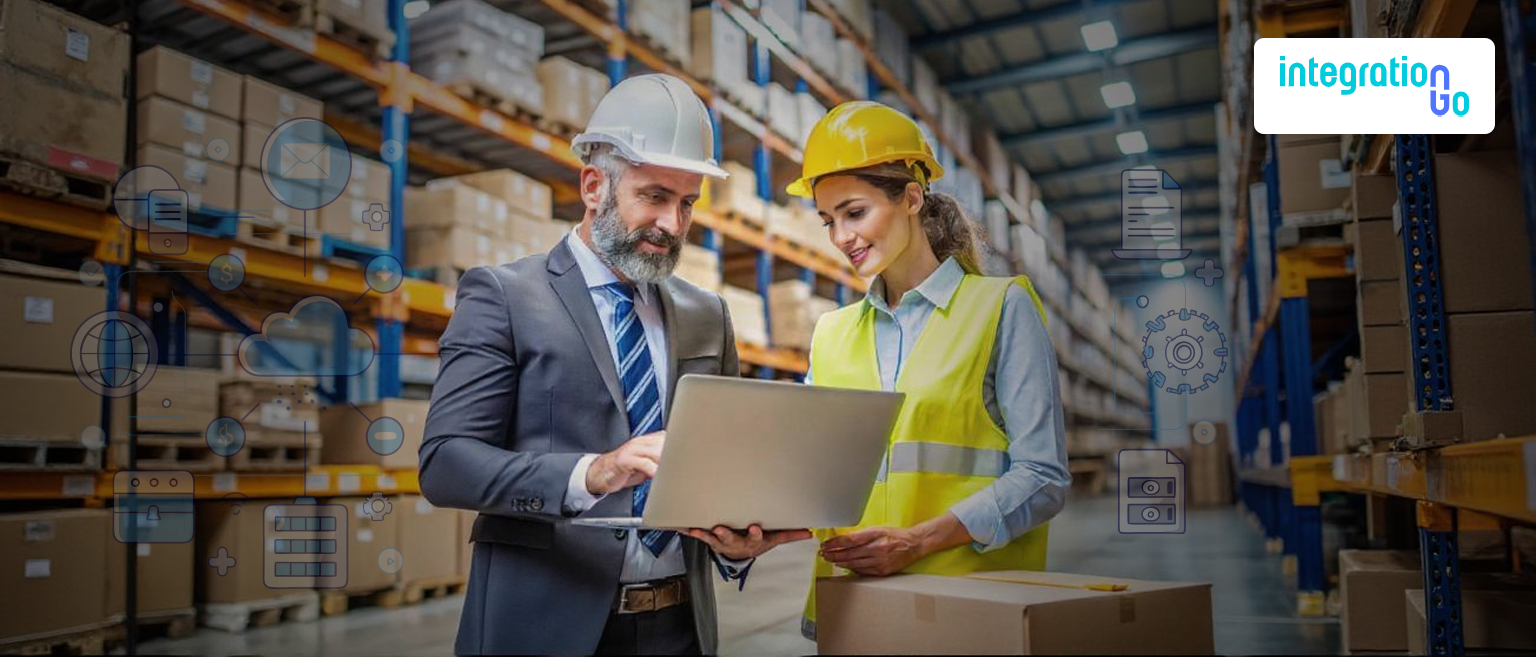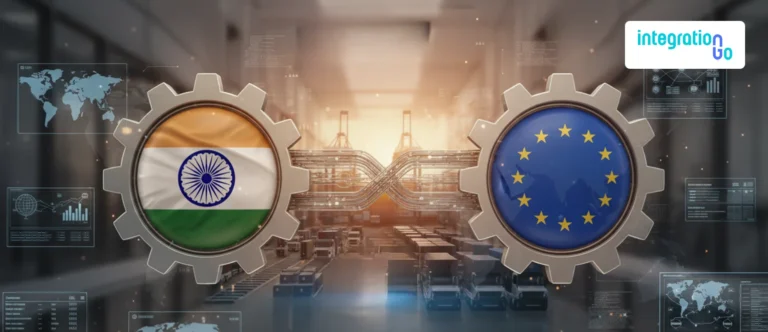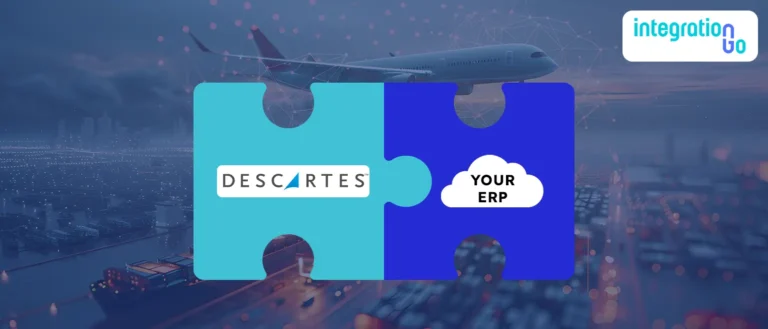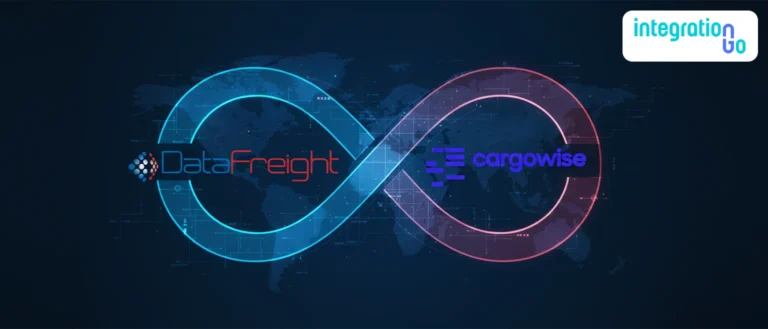"Manual processes are a hidden price on supply chains, and the bill always arrives when it's least convenient."
If you're a supplier or wholesaler dealing with large amounts of orders, invoices, and shipments, your staff is probably packed with emails, spreadsheets, and hours of manual data entry simply to keep things moving. You are losing time, money, and accuracy with each order confirmation, inventory update, or invoice that does not immediately sync across your ERP, partners, and warehouses.
By using IntegrationGo's smooth wholesaler and supplier integration solution, you create a supply chain that is more intelligent, quicker, and more powerful than just connecting systems. We assist you with automating your business-critical operations and removing barriers whether you're using CargoWise, SAP, Oracle, Magaya, or any other ERP.
What is Supplier Integration?
The foundation of contemporary, interconnected supply chains is supplier integration, which is more than simply a popular technology term. Fundamentally, supplier integration is the smooth digital link between your company's systems (such as your ERP or WMS) and those of your clients, partners, or third-party logistics (3PL) facilities.
Integration enables data to flow smoothly, eliminating the need for tedious manual uploads, spreadsheets, or emails. Consider how purchase orders, invoices, shipment statuses, and stock updates all match between systems automatically. In addition to saving time, this significantly lowers the possibility of errors that may arise when data must be processed by hand.
Why Supplier Integration Matters More Than Ever
Manually handling orders, inventory, and billing is not just outdated, but also exhausting. Wholesalers and suppliers are always under pressure to handle intricate product lines, fulfill stricter deadlines, and satisfy rising client demands. You're managing many systems, entering the same data again across platforms, and spending more time on administration than on real growth if you don't integrate.
Integration eliminates problems. It unifies a complex network of communication into a single, automated pipeline by connecting your ERP with your clients' ordering platforms, your 3PL's warehousing platforms, and your invoicing tools. Integration helps you recover time, cut down on errors, and work with confidence whether you're using CargoWise, SAP, Quickbooks, Oracle, or any other platform.
How Integration Helps Suppliers & Wholesalers Operate Smarter
The most crucial information, like orders, shipment statuses, or stock levels, is available to you in real time without requiring you to follow up with people or check five different systems. Not only can this type of visibility speed up your work, but it also helps you make better decisions, such as prioritizing shipments or reordering goods.
Additionally, your clients have a better experience. Invoices arrive on schedule and in the correct format, orders are promptly validated, and inventory is accurate. Reliability like that fosters trust and retains your partners.
Goodbye Manual Work, Hello Automation
One of the biggest pain points for suppliers is repetitive manual work. Before integration, teams are stuck processing purchase orders by hand, matching invoices line by line, and sending out tracking numbers manually. That’s hours of effort every week that could be better spent elsewhere.
Integration automates these workflows. Orders are pushed directly into your ERP from your customer’s system. Invoices are automatically generated and validated before being sent. Shipment updates are shared in real-time as items leave the warehouse. This isn’t just automation, it’s freedom for your team to focus on what matters, growth, relationships, and strategy.
Faster Customer Onboarding and Easier Collaboration
You've probably been there, you welcome a new customer or partner, only to discover that their systems are incompatible with yours. All of a sudden, your teams are rushing to come up with workarounds or unique file formats.
Onboarding is made simple when a flexible integration architecture is in place. No matter what platform your new partners use, it's easy to connect with them. By utilizing pre-built connectors and scalable architecture that expands your company, IntegrationGo assists wholesalers and suppliers in resolving compatibility concerns.
Total Visibility From Purchase to Delivery
One of the best things about supplier integration is the transparency it brings. You can track an order from the moment it's placed to the moment it lands in your customer’s hands.
This level of visibility not only gives you peace of mind, it also helps you answer questions faster, resolve issues sooner, and keep everyone in the loop without needing to send a single email. And when your operations are transparent, your customers trust you more, and your internal team feels more in control.
Why IntegrationGo is the Right Partner for Supplier Integration
Setting up integration the right way isn’t always simple. That’s where IntegrationGo comes in. We don’t just provide software, we deliver a fully managed service from start to finish. Our team of experts works with you to map data flows, configure your ERP, test your setup, and make sure everything works flawlessly, day one and every day after.
We support integrations with platforms like CargoWise, SAP, Oracle, Magaya, and more. Whether you’re working with local retailers or international freight partners, we ensure that your systems stay connected, compliant, and scalable. And the best part? We offer fixed, per-connection pricing, so you’re never blindsided by unexpected costs.
Conclusion
If you’re still stuck handling orders, invoices, and shipments manually, now’s the time to change that. Supplier integration isn’t just a technological upgrade, it’s a smarter way to run your business. It helps you save time, reduce errors, boost accuracy, and deliver a better customer experience every step of the way.
Want to see what seamless supplier integration can look like for your business?
Book a call with the experts at IntegrationGo today and take the first step toward a fully automated, future-ready supply chain.




